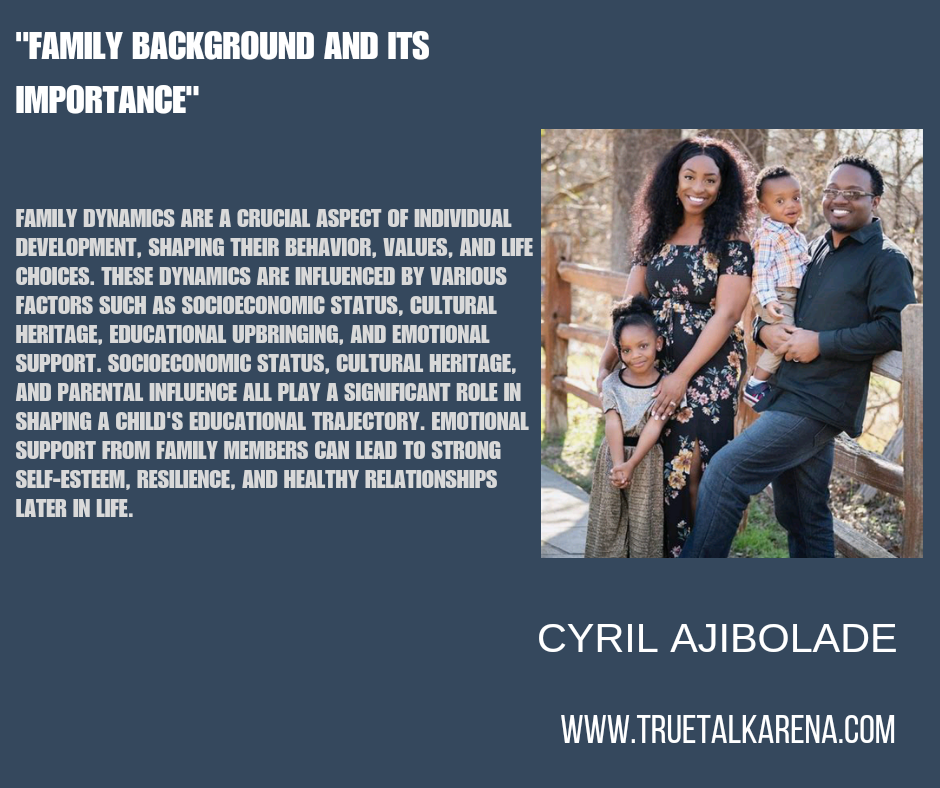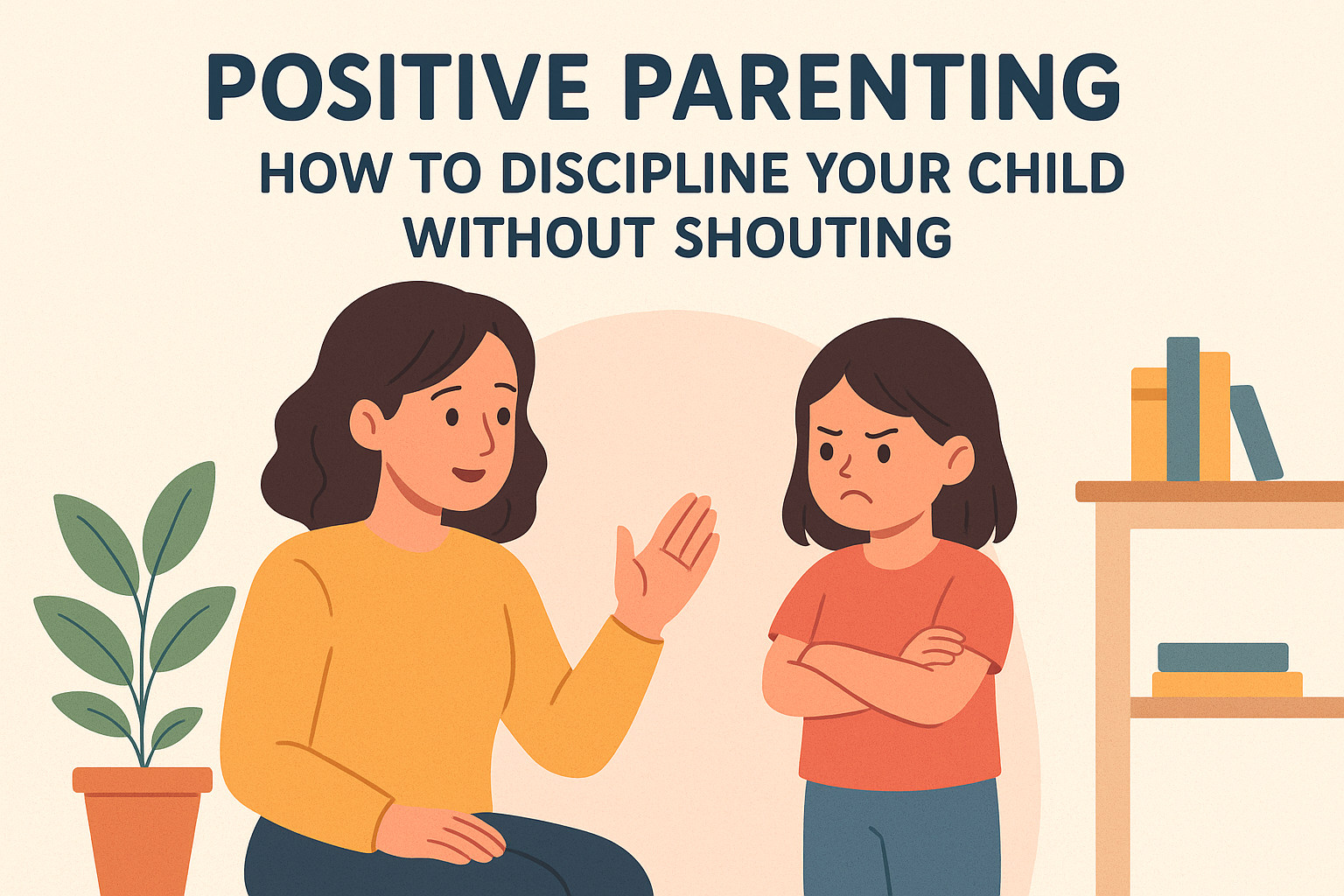
Family Background and Its Importance
Family, in all its varying forms across cultures and societies, remains one of the most fundamental structures of human life. It is within the family that individuals first experience love, care, support, and the values that guide them throughout their lives. The ethos of family is deeply intertwined with the cultural, emotional, and social fabrics that form the basis of society. Family offers more than a biological connection; it serves as a repository of traditions, a ground for moral education, and a sanctuary of support. In this article, we explore the meaning of family, the different types of family structures, its role in personal development, and how its core values form the cornerstone of societal ethos.
The Concept of FamilyThe concept of family extends beyond mere blood relations. It encompasses those with whom we share strong emotional bonds, common goals, and mutual respect. Families come in many forms: nuclear families, extended families, single-parent families, blended families, and chosen families—those we adopt into our lives based on emotional connections rather than biological or legal ties.Regardless of its form, family offers a sense of belonging and identity.
It gives individuals their first understanding of social dynamics, love, responsibility, and the meaning of life in relation to others. In many ways, family is the most basic unit of human society, serving as a microcosm of the larger social structures that exist in the world.
Family as a Repository of Values:The family serves as the first institution where children learn the fundamental values that guide human behavior. It is within the family that people are introduced to ethics, empathy, and communal responsibility. Parents and elders pass down beliefs, traditions, and practices that shape individuals’ perceptions of right and wrong.
Among the core values embedded in family life are:
Love and Compassion: One of the first and most crucial lessons families impart is love. Love is not only expressed through affection but through acts of sacrifice, support, and mutual respect. Compassion for others, especially those within the family, often becomes a template for empathy towards the wider world.
Responsibility: In families, children learn the importance of responsibility—whether it’s household chores, academic duties, or caring for siblings. These early responsibilities teach the value of hard work, accountability, and discipline.
Respect: Families teach individuals how to respect others, especially elders, authority figures, and peers. Respect in a family context encompasses a range of behaviors, from listening to others’ opinions to honoring traditions and practices passed down through generations.
Forgiveness and Patience: No family is without its challenges. Disagreements, conflicts, and differences of opinion are inevitable. It is within the family that individuals first learn the importance of forgiveness, patience, and understanding. These virtues foster stronger relationships both within and outside the family unit.
Perseverance and Resilience: Families often face hardships together, be it financial struggles, illness, or emotional turmoil. By navigating challenges together, families instill in individuals a sense of resilience and perseverance, equipping them with the mental and emotional tools necessary to confront life’s difficulties.
Types of Family Structures:While the traditional family structure often conjures images of a nuclear family—a father, mother, and children—the modern family has evolved significantly, taking many different shapes and forms across cultures and societies.
Nuclear Family: The nuclear family typically consists of two parents and their children. It is often considered the standard in many Western societies. While this family structure emphasizes parental responsibility and intimate relationships between parent and child, it can also be isolating without extended family support.
Extended Family: An extended family includes relatives beyond the immediate household—grandparents, aunts, uncles, and cousins. This structure is common in many non-Western cultures, offering a broader support network. Elders often play a key role in guiding the younger generation and providing wisdom.
Single-Parent Families: In single-parent families, one parent takes on the responsibility of raising the children. These families can face unique challenges but also foster resilience, adaptability, and stronger parent-child bonds due to the concentrated focus on one relationship.
Blended Families: With rising divorce and remarriage rates, blended families—where children and parents from previous relationships come together—are becoming more common. Blended families often navigate complex emotional landscapes but can also expand their bonds of love and care through shared experiences.
Chosen Families: As societal norms shift, the concept of chosen families is gaining recognition. Chosen families consist of close friends or loved ones who provide the support and care traditionally expected from biological families. They are especially important in communities where individuals may be estranged from their families or seeking an alternative form of kinship.
The Role of Family in Personal Development:
The family’s role in personal development is immense. As the primary environment in which individuals grow, it shapes one's psychological, emotional, and social growth. From infancy to adulthood, the family nurtures individuals by providing the foundation for their understanding of themselves and their role in society.
Emotional Development: Within the family, individuals experience their first emotional bonds. These connections serve as the building blocks of emotional intelligence, teaching people how to express love, anger, frustration, and joy appropriately. Positive family dynamics encourage healthy emotional development, while negative experiences may hinder it.
Moral Development: Families impart a sense of morality by teaching individuals about fairness, justice, and ethical behavior. Children learn to differentiate right from wrong and are guided by the values and moral compass set by their families. The ethical teachings from family members influence an individual’s behavior well into adulthood.
Social Development: The family provides the initial social setting where individuals learn to communicate, cooperate, and form relationships. Children raised in supportive families often develop strong social skills, allowing them to engage positively with the broader community.
Cultural Transmission: Families are also responsible for passing down cultural and religious traditions. This can include language, customs, rituals, and heritage, which contribute to a person’s identity. Cultural continuity is preserved through family practices, strengthening an individual’s connection to their roots and the wider community.
Family as a Cornerstone of Society:
Family is the fundamental institution of any society. When families function well, they contribute to the stability and prosperity of society as a whole. Family structures provide a model for social interaction, and the values learned within families extend into larger societal contexts.
Social Stability: Healthy families contribute to social stability by raising responsible, empathetic, and well-adjusted individuals. A society with strong family values is often characterized by lower crime rates, greater civic participation, and higher levels of trust and cooperation among its members.
Economic Stability: Families are also economic units, providing for each other’s financial and material needs. They offer financial support in times of need, help to pool resources, and share responsibilities such as caring for elderly relatives or supporting children through education.
Civic Responsibility: Families that encourage civic responsibility and community involvement play a vital role in the development of active and engaged citizens. By teaching the importance of contributing to society—whether through voting, volunteering, or simply being a good neighbor—families foster the growth of conscientious individuals who participate in the common good.
Challenges Facing Modern Families:
Despite its importance, the family unit is under significant pressure in modern society. Rapid cultural and economic changes have introduced challenges that strain traditional family structures.
Work-Life Balance: As economies grow and work demands increase, many families struggle to find a balance between professional responsibilities and time spent together. This often leads to emotional distance between family members and can erode the bonds that hold the family together.
Technology and Communication: The rise of technology has transformed the way families interact. While technology offers opportunities for families to stay connected over long distances, it can also contribute to a decline in face-to-face communication and the quality of family time.
Changing Social Norms: As societies become more accepting of diverse family structures, traditional expectations of what a family should look like are being redefined. While this has allowed for greater inclusivity, it has also brought about debates regarding the changing roles of family members, particularly in relation to gender roles, parenting, and marriage.
In Conclusion,Family is not merely a social structure but a fundamental cornerstone of human life. It provides emotional support, cultural transmission, and moral guidance, all while contributing to the well-being and stability of society. The ethos of family—centered around love, responsibility, and respect—remains one of the most powerful influences in shaping individual lives and communities.As societies evolve, the concept of family will undoubtedly continue to change. However, its core values will remain essential to the development of compassionate, responsible, and resilient individuals who contribute positively to the world around them. In the end, family, regardless of its form, will always be the place where life’s most important lessons are learned, and where people find their sense of belonging and purpose.



0 COMMENTS